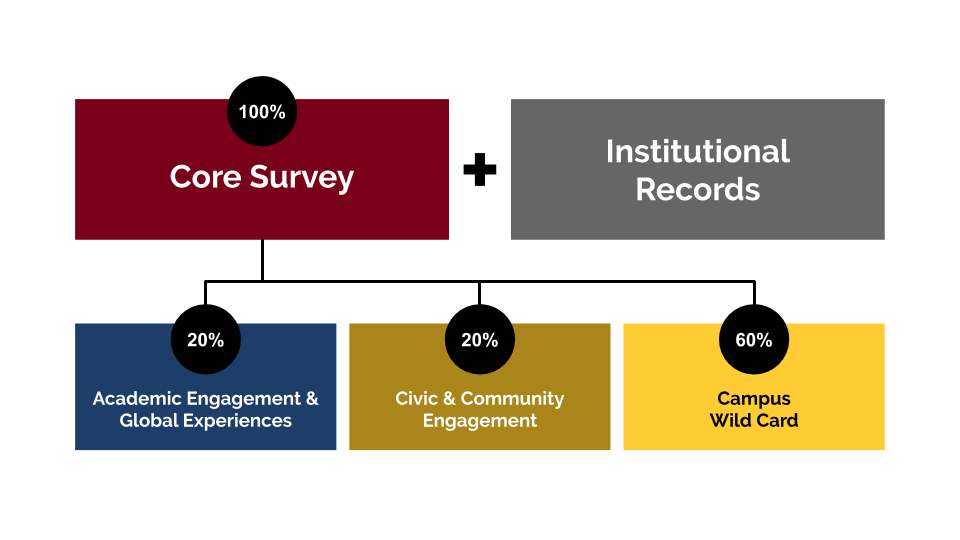Survey Objective
The SERU survey is administered to all University of Minnesota degree-seeking undergraduate students. The items provide a comprehensive snapshot of the student experience, tapping into diverse domains of interest to a variety of campus stakeholders. There are several items designed to gather information on academic and civic engagement, student learning and development, student services, and globalization.
Students respond to items that provide insight into how students use time, academic and personal development, campus climate for diversity, overall satisfaction, and evaluation of the major (if applicable). Since the survey asks students about their background, beliefs, motivations, and perspectives, in addition to insight into academic and co-curricular engagement (or disengagement), the diversity in responses provides the unique opportunity to explore the student experience through a variety of lenses.
Survey Design
The SERU survey data can be used to assess program effectiveness, benchmark with peer and aspirational universities, and gather unique insights about the experiences of students. Additionally, SERU data yields additional demographic information not captured in institutional data sets (e.g. immigrant status, religious preference, etc.); as such, it provides a rich source of information about University of Minnesota-Twin Cities students not currently captured in other institutional surveys.
The SERU survey has over 600 questions within several thematic areas: academic engagement, civic and community engagement, student life and development, and student satisfaction. Each year, the University of Minnesota-Twin Cities also develops a wildcard survey module each year addressing questions pertinent to various stakeholders on campus (e.g. academic advisors, administrators, etc.).
Designed for targeted data-driven solutions
SERU items were created to gather information about a specific college student population: Students who attend research institutions.
Based on the unique context of research universities, a deliberate effort was made to capture the complexity of these institutions. Survey items are designed to allow for analysis not only at the institutional level, but also by college and even academic major. Since research universities are often complex organizations, the ability to identify specific areas within the institution can inform targeted self-improvement efforts, as well as provide evidence of quality at multifaceted levels.
Modular-Based Instrument
The SERU Survey is made up of the survey core that is administered to all students, and then each student can be randomly assigned to additional module(s). The optional modules include: Academic and Global Experiences, Civic and Community Engagement, Student Life and Development, Educational Technology, and a Campus Wild Card. The University of Minnesota Wild Card contains additional questions related to health and well-being, financial wellness, housing/food insecurity, and additional advising-related questions to name a few. Survey responses are then matched to certain institutional records for reporting purposes (e.g. Pell eligibility, first-generation status, class-level, GPA, etc.).
The University of Minnesota administers SERU based on the following format:
